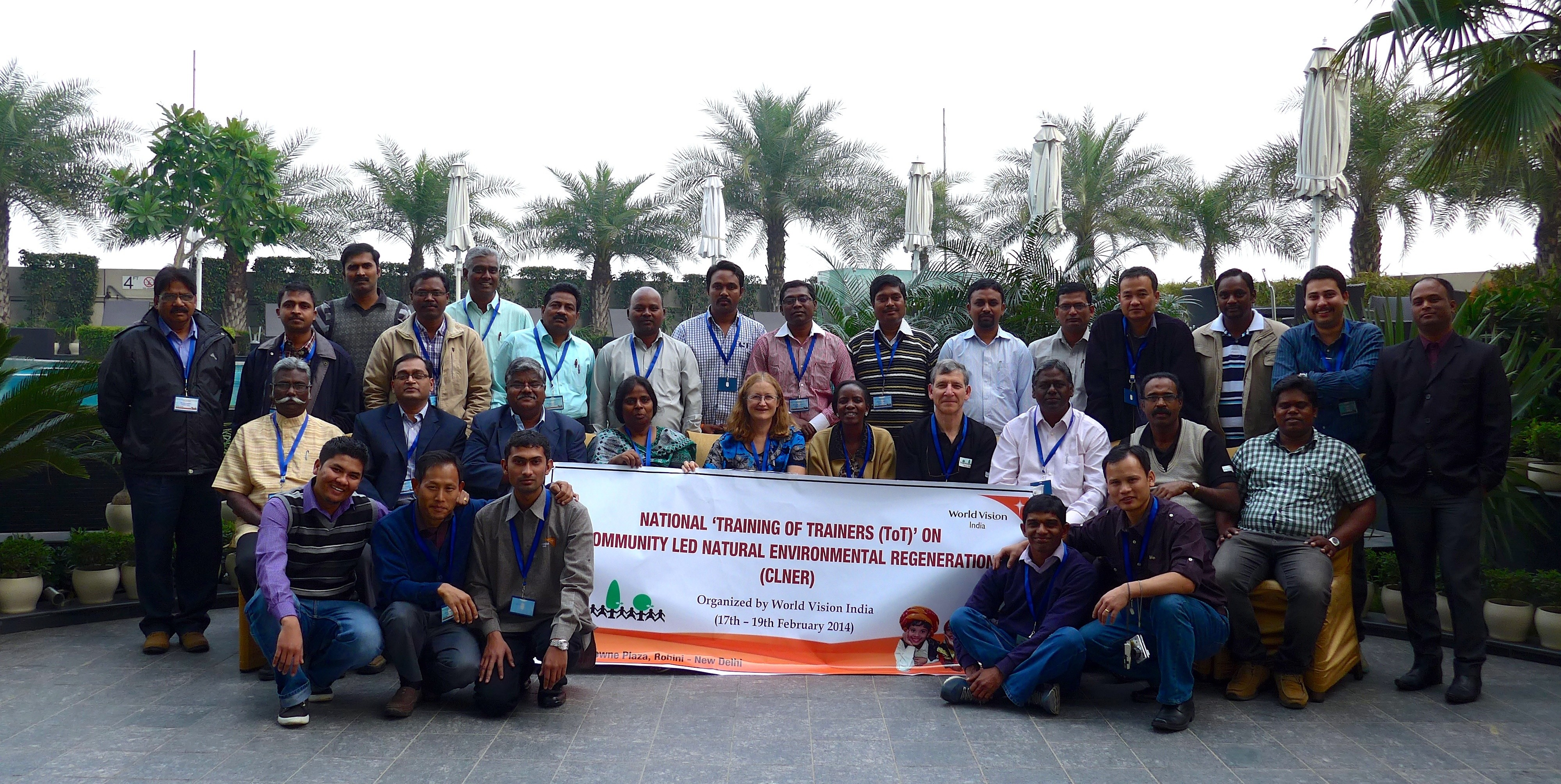
Seeds sown for Farmer Managed Natural Regeneration (FMNR) in India
March 3, 2014
One of Tony Rinaudo’s childhood memories is his horror at seeing the famines and alternate droughts and floods in India on the TV. As FMNR has gained momentum around the world as a low cost, sustainable and scalable means of restoring and increasing the productivity of degraded land, he dreamed that it would eventually come to India.
India is the second most populous country in the world (1.2 billion). In 2010, 66.7% were living on less than US$2/day (World Bank). Of the total landmass of 306 million hectares, 147 million hectares are degraded [1]. The causes are many but include wind and water erosion, waterlogging, salting, inappropriate agrochemical use and industrial contamination.
As the poor strive to survive, they often contribute to the destructive spiral of environmental damage and increasing poverty that is responsible for the loss of US$80 million (5.7%) of India’s economy[2].
On February 17-19, 30 energetic World Vision staff arrived in New Delhi from all over India. As they reported on each of their project areas, we heard of declining crop yields, clearing of forests on steep mountain slopes, increasing flash floods, soil erosion, declining fertility and the drying up of springs, rivers and wells. The attendance by a number of senior managers showed the importance WV India is assigning to this initiative. Past experience has shown that commitment by senior managers, and their support to staff at project level, is important for successful rollout.
Cotilda Nakyeyune, World Vision Uganda Country Manager for FMNR, quickly won the admiration of the group as she shared the challenges, successes and plans of the FMNR program in Uganda.
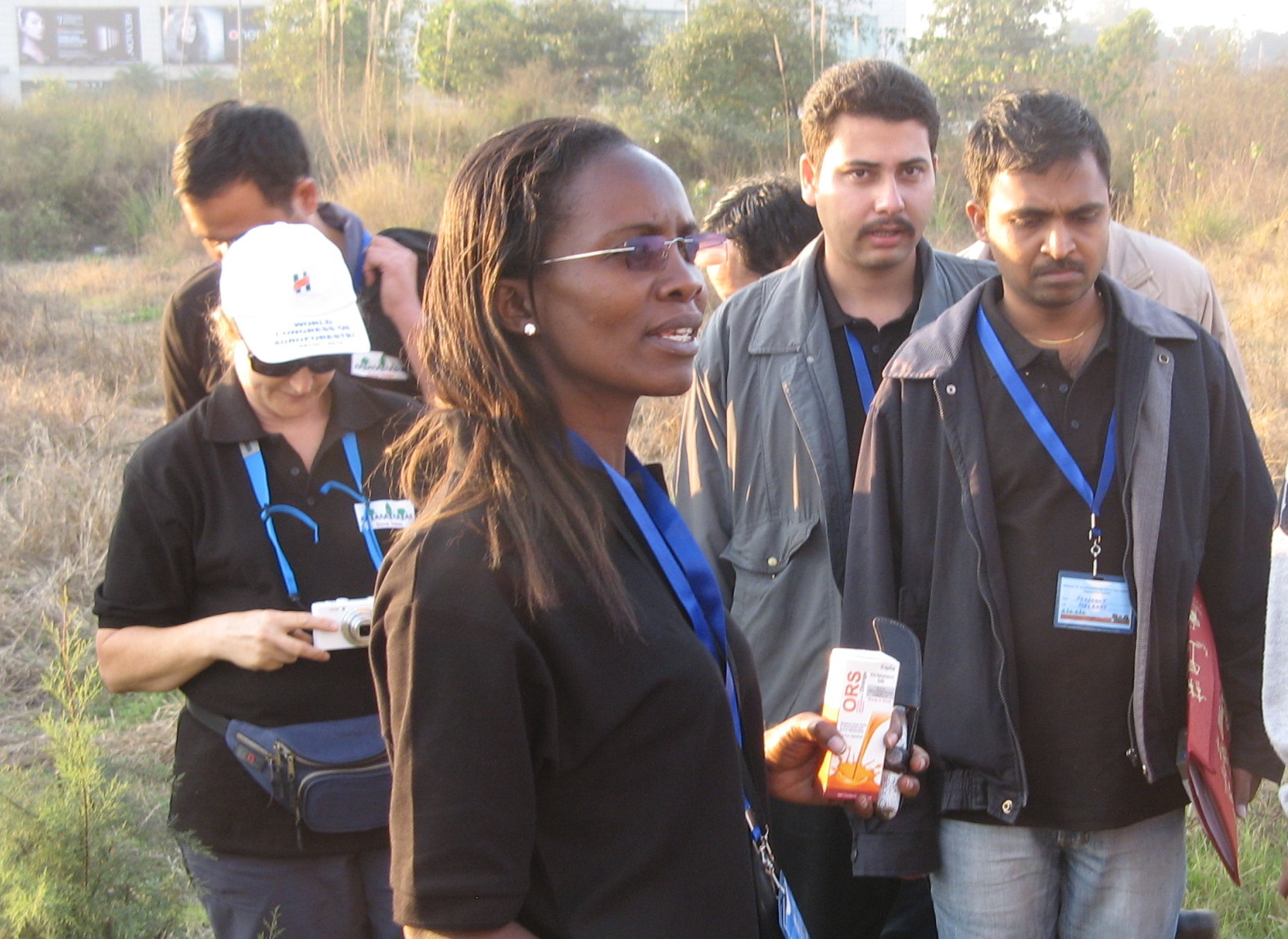
A visit to the Yamuna Biodiversity Park, on the outskirts of New Delhi, to see how badly degraded and polluted land had been restored to a vibrant and biodiverse wetland built their understanding of what had been lost and their enthusiasm for what is possible.
We explored the best ways to prune trees to enhance regeneration; how to know which species to encourage; the importance of working with established authorities in communities; building on local knowledge; working with the community to develop local bylaws about tree and animal management; working with local government; planning for fair marketing systems for forest products; fire; and the ever present debate over whether to plant trees or regenerate them.
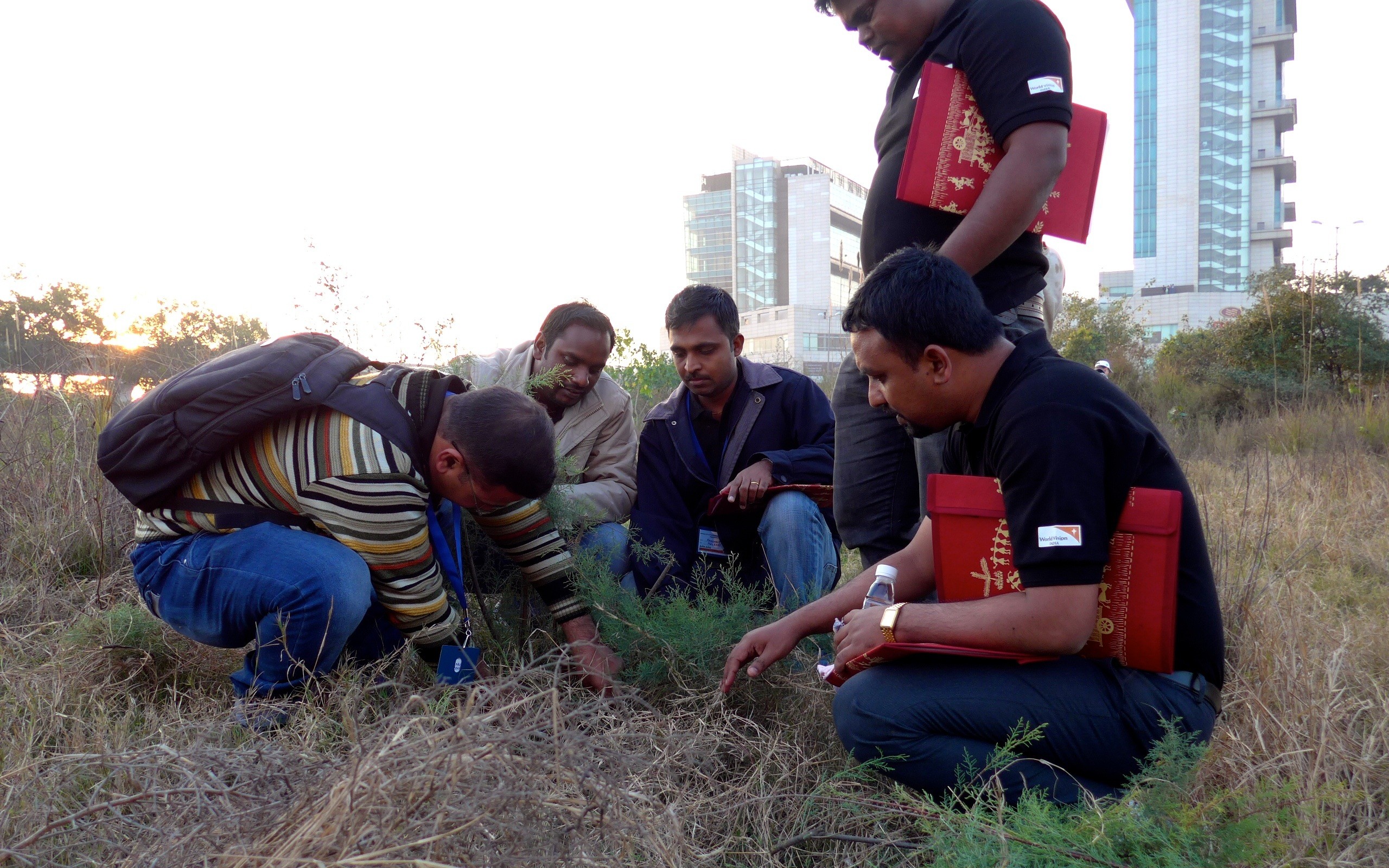
The group listened, questioned and debated with such energy that we were challenged to cover the essential materials within the 3 days. The FMNR success stories from Niger, Ethiopia, Ghana, Senegal and other countries left no doubt in their minds that empowering communities to work together to restore degraded land by the managed regeneration of trees can substantially improve the wellbeing of rural communities by increasing the fertility and water-holding capacity of farmland, protecting soils from erosion, providing tree products for home consumption and sale and protecting water catchments.
FMNR initiatives are now planned for projects across India
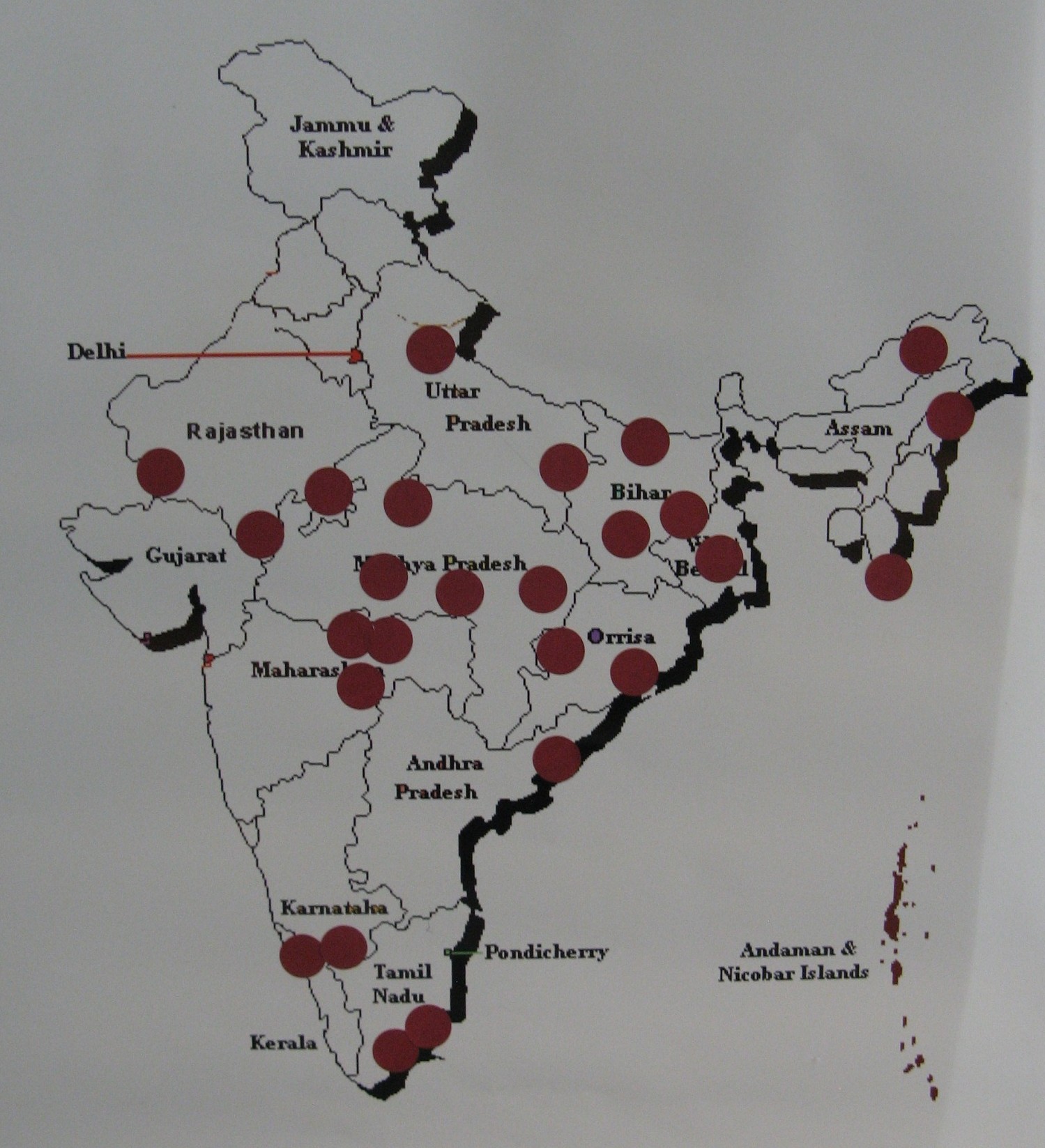
As we drew the training to a close, the participants wrote action plans for rolling out FMNR in their project areas. They will travel back to their workplaces in the north, south, east and west of India and we hope to begin to hear their success stories within a year.
Until next time
Liz
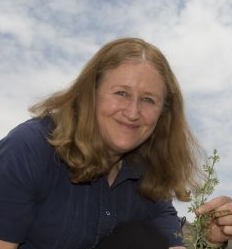
Liz is travelling with her husband, Tony Rinaudo, Natural Resources Advisor at World Vision Australia, promoting Farmer Managed Natural Regeneration of trees in India and Ethiopia.
